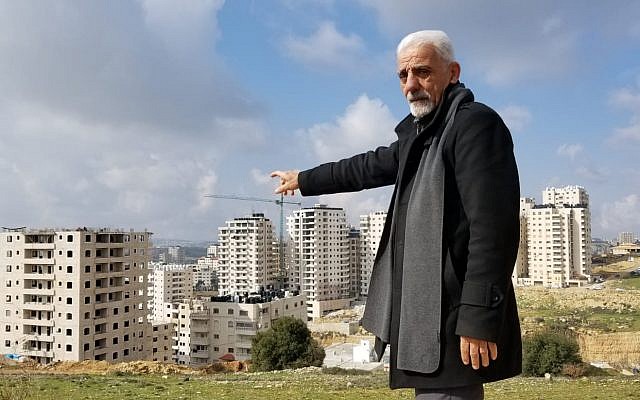The Education Ministry and the Jerusalem Municipality are seeking to bring a Palestinian school in East Jerusalem under their direct control by the start of next September in a bid to improve the quality of education at the troubled institution, Israeli officials said on Sunday.
If they succeed in making the change, the Dar al-Marafa school in the neglected Kafr Aqab neighborhood could gain access to a significantly higher amount of government funding.
But David Koren, the director of strategic planning for East Jerusalem in the Education Ministry, said that teachers who do not hold Israeli residency would not be able to continue to teach at the school if Israeli authorities take control of its administration.
“We want to put the school under our administration by the start of the next academic year, but nothing is final as of the moment,” Koren said in a phone call.
An official at the Jerusalem Municipality, who spoke on condition of anonymity, confirmed Koren’s comments.
Koren and the Jerusalem Municipality official added that they would like to provide students at Dar al-Marafa with the option to study under either the Israeli or Palestinian Authority curriculum.
“We will not force the Israeli curriculum on anyone and we plan to consult with families about which one they want their kids to study,” Koren said.
Israel captured East Jerusalem from Jordan in the 1967 Six Day War and later annexed it, bringing it under Israeli jurisdiction. Most Palestinians in the eastern part of the city are residents of Israel with Israeli IDs. They can apply for citizenship, though few do.
Approximately half of schools in East Jerusalem are operated by the Education Ministry and Jerusalem Municipality, Koren said. Another 40 percent are run by nongovernmental organizations with state funding and 10% are privately administered and financed, according to Koren.
Schools operated by NGOs receive roughly three-fourths of the government funding allocated to those run directly by the government, and they often resort to collecting private donations to cover their expenses.
The court made the decision after the organization misused state funds and failed to pay teachers, he explained.Dar al-Marafa was run by a local nongovernmental organization until two years ago, when an Israeli court ordered that the NGO hand over the reins to a group of temporary managers, Koren said.
“There was some serious corruption and the school essentially went bankrupt,” he said. “So the court ordered that temporary managers take it over until we find a solution.”
Yossi Havilio, a city council member, said: “Approximately 20 parents and teachers came to me a month and a half ago and said they do not want a new NGO to take responsibility for the school’s administration and instead prefer the municipality and ministry to do so. They said they were afraid that a NGO would fail to operate the school properly.”
“I then spoke to Mayor Moshe Leon and the Education Ministry and we decided that we would work on bringing this school under our administration,” he added.
Koren also said he had been approached by parents and teachers about bringing the school under the municipality and ministry’s control.
For several years, Kafr Aqab, a large neighborhood in Jerusalem over ten kilometers north of the city center, has suffered from poor planning, inadequate public infrastructure and rampant lawlessness.
Munir Zughayer, an activist who leads a committee that frequently complains to the Jerusalem Municipality about the poor state of services in Kafr Aqab, said that he would welcome the decision to transfer Dar al-Marafa’s administration to Israeli authorities.
“We know that these types of schools are better than those run by organizations,” he said. “We hope Dar al-Marafa will become one of them.”
Zughayer said that currently four of 21 schools in Kafr Aqab are run by the ministry and municipality.
But Zughayer also said Israel would be making a mistake if it fired the teachers at the school who do not hold Israeli residency or citizenship.
“We have good teachers at the school who come from areas controlled by the Palestinian Authority,” he said. “It is important that they not be removed from their positions.”
In contrast to Koren, Havilio asserted the possibility of granting teachers from PA-controlled areas special permits was being explored.

